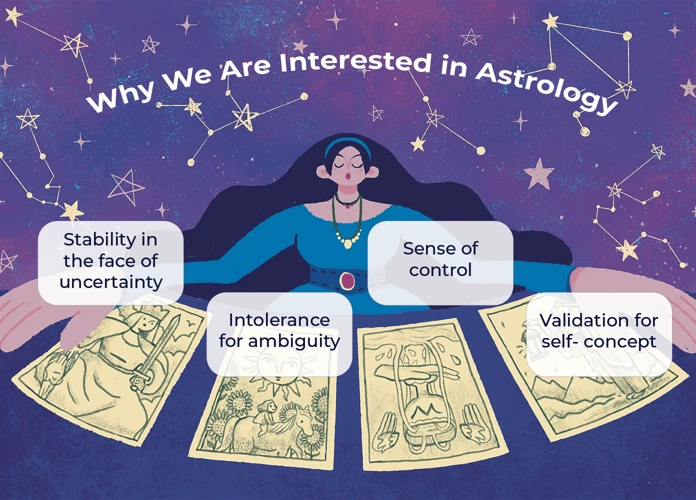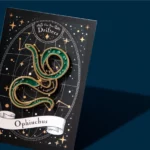Astrology and the Study of Human Behavior: A Scientific Perspective
Are the positions of the stars and planets at the time of our birth linked to our personalities and life experiences? This age-old question has captivated mankind for centuries. Astrology, an ancient belief system rooted in the alignment of celestial bodies, proposes that cosmic energies influence human behavior. But is there any scientific basis to support this claim? In this article, we will delve into the historical background and core concepts of astrology. We will also explore the scientific study of human behavior, including psychology, sociology, and anthropology, to shed light on the subject. Additionally, we will examine the scientific criticisms of astrology, such as the lack of empirical evidence, confirmation bias, and the Barnum Effect. We will discuss the psychological role astrology plays, providing self-reflection, validation, and a sense of identity and belonging. Join us on this intriguing journey as we unravel the mysteries of astrology from a scientific perspective.
Contents
- What is Astrology?
- The Scientific Study of Human Behavior
- Scientific Criticism of Astrology
- Psychological Role of Astrology
- Closing Thoughts
- Conclusion
-
Frequently Asked Questions
- 1. What is the history of astrology?
- 2. How does astrology determine personality traits?
- 3. Can astrology predict the future?
- 4. What is the role of astrology in relationships?
- 5. Can astrology help with decision making?
- 6. Is astrology considered a science?
- 7. How does astrology impact self-reflection?
- 8. How does astrology contribute to a sense of identity?
- 9. Can astrology be used for career guidance?
- 10. How do skeptics explain the correlations in astrology?
- References
-
Frequently Asked Questions
- 1. Is astrology considered a science?
- 2. What are some common astrological concepts?
- 3. How does astrology influence human behavior?
- 4. What is the scientific study of human behavior?
- 5. Can astrology provide accurate predictions?
- 6. What role does psychology play in understanding human behavior?
- 7. How does astrology impact one’s sense of identity and belonging?
- 8. What is confirmation bias?
- 9. How does astrology contribute to self-reflection and self-validation?
- 10. Does astrology have any scientific credibility?
- References
- Read More
What is Astrology?

Astrology is a complex belief system that seeks to understand and interpret the influence of celestial bodies on human behavior and life events. The study of astrology dates back thousands of years and is deeply rooted in ancient cultures and civilizations. Astrology operates on the premise that the positions and movements of celestial objects, such as the sun, moon, planets, and stars, can have a profound impact on individuals and society as a whole. Its foundation lies in the concept that these celestial bodies emit cosmic energies that, in turn, influence various aspects of our lives.
One key historical background of astrology is its origins in ancient Mesopotamia and its subsequent influence on other civilizations, including the Greeks, Romans, and Egyptians. These early civilizations conducted meticulous observations of the night sky and developed systems and symbols to chart and interpret celestial movements. Over time, this evolved into the creation of intricate astrological charts and horoscopes, which provide insights into an individual’s personality traits, relationships, and future endeavors.
Astrological concepts revolve around the twelve zodiac signs, each attributed to specific personality traits and characteristics. These signs are determined based on the position of the sun at the time of birth. Astrology also considers the influence of the moon, planets, and other celestial bodies, along with their alignments and aspects, in interpreting and predicting human behavior and life events.
However, it’s important to note that astrology is a subject of debate and controversy within the scientific community. Critics argue that astrology lacks empirical evidence and scientific validity. While there are correlations between astrological predictions and individuals’ experiences, skeptics argue that these correlations can be attributed to chance or psychological factors such as confirmation bias or the Barnum Effect.
Despite the scientific skepticism surrounding astrology, it remains a widely popular belief system, with millions of people seeking guidance and insights from astrological readings. Whether one fully embraces astrology or approaches it with skepticism, the study of astrology continues to fascinate and intrigue individuals seeking understanding and self-discovery.
1. Historical Background
The historical background of astrology is rich and diverse, spanning across different civilizations and cultures. One of the earliest civilizations to observe and study the stars was ancient Mesopotamia, present-day Iraq and Iran. Around 2,000 BCE, Mesopotamian astronomers began keeping detailed records of the celestial movements, connecting these observations to events on Earth. They believed that the position of the heavenly bodies held significance for both individual lives and the fate of entire empires. The Babylonians, descendants of the Mesopotamians, further developed astrology by creating the zodiac system, dividing the sky into twelve equal sections, each associated with a specific constellation. This laid the foundation for the zodiac signs we know today, such as Aries, Taurus, and Gemini.
The influence of Mesopotamian astrology spread to other civilizations, such as the Greeks, Romans, and Egyptians. The Greeks, particularly influential in shaping Western astrology, embraced the concepts of the zodiac signs and developed a deeper understanding of the relationships between celestial bodies and human behavior. Greek astrologers devised complex techniques to predict various aspects of an individual’s life by analyzing the positioning and relationships of planets and stars.
During the Hellenistic period, astrology flourished, and astrologers gained prominence and respect within society. Their expertise was sought after by rulers, scholars, and the general public alike. The teachings of famous astrologers like Ptolemy and Vettius Valens continue to be studied and referenced in modern astrology.
Over time, astrology spread to other parts of the world, including India and China, where it took on its unique cultural interpretations. In Vedic astrology, practiced in India, the movement of the planets is seen as a reflection of the karmic patterns of individuals and the collective. Chinese astrology, on the other hand, places a significant emphasis on the lunar calendar and animal zodiac signs.
The historical background of astrology is a testament to its enduring fascination and adaptability across different eras and cultures. It has left an indelible mark on human civilization, influencing art, literature, and even shaping the way individuals perceive and understand themselves. Today, astrology continues to evolve and captivate people from all walks of life, offering insights, guidance, and a deeper connection to the ancient mysteries of the cosmos.
2. Astrological Concepts
Astrological concepts form the framework through which astrology interprets and understands human behavior and life events. At the core of astrology are the twelve zodiac signs, each representing distinct personality traits and characteristics. These signs are associated with specific elements – fire, earth, air, and water – which further influence the individual traits and tendencies of each sign.
The zodiac signs are determined by the position of the sun at the time of an individual’s birth. For example, those born between March 21st and April 19th fall under the zodiac sign of Aries, characterized by traits such as confidence, leadership, and assertiveness. Similarly, individuals born between April 20th and May 20th fall under the sign of Taurus, representing traits like determination, stability, and practicality.
In addition to the zodiac signs, astrology considers the influence of other celestial bodies on human behavior. The moon, for instance, is believed to influence emotions and instincts, while the positions and movements of planets such as Mercury, Venus, and Mars are associated with specific areas of life, such as communication, love, and passion, respectively.
Astrological concepts extend beyond individual horoscopes to explore the relationships between different zodiac signs. Compatibility between signs is a common aspect of astrology, with certain signs believed to be more harmonious or challenging when paired together. Understanding the compatibility between individuals based on their zodiac signs can provide insights into potential areas of strength or areas that might require compromise and understanding.
It’s worth noting that astrology continues to evolve, with new concepts and interpretations emerging over time. For example, the inclusion of Ophiuchus, also known as the serpent-bearer, as an additional zodiac sign has sparked discussions and debates within the astrological community. Ophiuchus represents qualities such as healing, wisdom, and embracing individuality, breaking away from traditional norms. This inclusion has led to further exploration of how Ophiuchus influences relationships, friendships, and love.
While astrology provides a system for understanding human behavior through its intricate concepts and symbols, it is essential to approach it with an open mind and the awareness that its interpretations are subjective. Ultimately, individuals have the freedom to embrace astrology as a tool for self-reflection and guidance or to approach it with skepticism.
The Scientific Study of Human Behavior
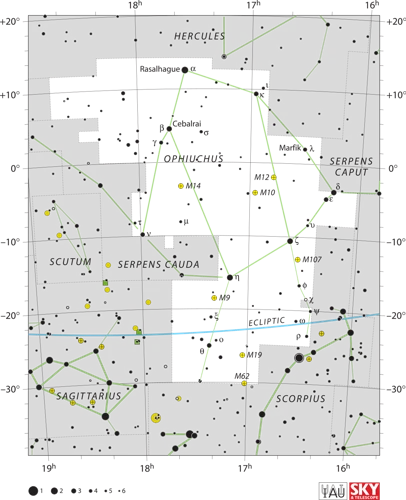
The scientific study of human behavior encompasses various fields such as psychology, sociology, and anthropology. These disciplines aim to understand and explain the intricacies of human behavior from a scientific perspective, relying on empirical evidence and rigorous research methodologies.
1. Psychology and Personality Traits: Psychology is dedicated to analyzing the human mind and behavior. It explores how individuals perceive, think, and react to different stimuli. Within the realm of astrology, psychologists investigate the relationship between astrological beliefs and personality traits. They examine factors such as the Big Five personality traits (openness, conscientiousness, extraversion, agreeableness, and neuroticism) and how they align or differ from commonly associated astrological characteristics. While there may be some correlations, psychologists argue that personality traits are shaped by a multitude of complex factors beyond celestial alignments.
2. Sociological Influence: Sociology delves into the impact of social structures, institutions, and interactions on human behavior. From a sociological perspective, the study of astrology can be seen as a reflection of social and cultural dynamics. Sociologists explore why individuals turn to astrology and how it relates to broader societal factors such as cultural beliefs, social norms, and the need for a sense of identity and belonging. The fascination with astrology may arise from the human desire to find meaning and navigate complexities in an ever-changing world.
3. Anthropological Perspectives: Anthropology examines human behavior through a cultural lens, exploring how beliefs and practices shape societies and individuals. From an anthropological standpoint, astrology can be seen as a cultural phenomenon embedded in various traditions and belief systems. Anthropologists study how astrology is practiced in different cultures and societies, shedding light on its role in rituals, ceremonies, and social interactions. It provides insights into how astrology serves as a tool for self-reflection, divination, or even entertainment in different cultural contexts.
While astrology operates outside the boundaries of scientific empirical evidence, the scientific study of human behavior offers valuable insights into why individuals are drawn to astrological beliefs. Psychology uncovers the psychological processes and factors that may contribute to the appeal of astrology, while sociology and anthropology provide a broader understanding of astrology’s social and cultural significance. By examining astrology through these scientific lenses, we gain a deeper appreciation for the complexities of human behavior and the multitude of factors that shape our beliefs and actions.
1. Psychology and Personality Traits
1. Psychology and Personality Traits
The field of psychology plays a crucial role in understanding human behavior and personality traits, which can be intertwined with astrology. Psychologists study various theories and concepts to explain why individuals behave the way they do and how their personalities are formed. While astrology does not align with traditional scientific principles, it offers a unique perspective on personality traits.
Astrology categorizes individuals into distinct zodiac signs, each associated with specific personality traits and characteristics. For example, Aries is often described as courageous and ambitious, while Taurus is seen as reliable and practical. These personality traits attributed to zodiac signs create a framework for self-reflection and self-understanding. Astrology enthusiasts believe that their zodiac sign can provide insights into their strengths, weaknesses, and how they interact with others.
From a psychological standpoint, astrology can serve as a tool for self-exploration and personal growth. By identifying with specific zodiac traits, individuals may gain a sense of validation and explanation for their behaviors and preferences. It allows them to delve deeper into their own thought processes, emotions, and motivations.
It’s important to note, however, that psychology emphasizes the role of genetics, upbringing, and life experiences in shaping individual personalities. While astrology may provide a lens for self-reflection, it should not be the sole determinant of one’s identity or behavior. It is crucial to maintain a critical mindset and consider astrology as just one of the many factors contributing to human complexity.
The overlap between astrology and psychology offers individuals an opportunity to explore their personality traits and gain a better understanding of themselves. Whether one fully believes in astrology as a science or views it as a tool for self-reflection, its influence on human behavior remains a subject of fascination and contemplation.
2. Sociological Influence
Sociological influence is an intriguing aspect to consider when examining astrology from a scientific perspective. While astrology primarily focuses on individual personality traits and life events, it also holds societal implications that shape our beliefs, behaviors, and interactions. Society plays a critical role in the development and perpetuation of astrological beliefs.
One aspect of sociological influence in astrology is the concept of symbolism and cultural significance. Astrology has become deeply ingrained in various cultures and societies, with specific symbols and meanings attributed to different zodiac signs. These symbols and meanings often reflect societal values, norms, and ideals. For example, the zodiac sign of Ophiuchus, often associated with breaking traditional norms and embracing individuality, may reflect a societal shift towards promoting uniqueness and non-conformity. This broader cultural influence reinforces and perpetuates certain astrological beliefs.
Astrology can have a significant impact on social dynamics and relationships. People with shared astrological signs may feel a sense of camaraderie and connection, as they believe they possess similar traits or experiences. Astrological compatibility between individuals is often a topic of interest, with people seeking guidance on romantic relationships, friendships, and even professional partnerships. However, it is essential to approach these astrological compatibility notions with a critical mindset, as relationships are influenced by numerous factors beyond astrological signs.
Additionally, astrology’s sociological influence can be seen in its role in popular culture, entertainment, and media. Astrological predictions and horoscopes are often featured in newspapers, magazines, and online platforms. Many individuals turn to these predictions as a source of entertainment and guidance, thus indirectly shaping their decisions and actions.
It’s important to note that while astrology can have sociological influence, it should not be the sole determinant of societal beliefs or behaviors. Sociological factors such as culture, upbringing, education, and personal experiences also play significant roles in shaping individuals and the society they live in. Astrology can be viewed as a reflection of social dynamics and a cultural phenomenon, rather than a purely scientific discipline.
The sociological influence of astrology highlights its connection to broader societal beliefs and behaviors. While astrology may provide insights and entertainment value, critical thinking and consideration of other influential factors are essential for a comprehensive understanding of human behavior and society as a whole.
3. Anthropological Perspectives
Anthropological perspectives play a crucial role in understanding the cultural significance and social impact of astrology. From an anthropological standpoint, astrology can be seen as a cultural belief system that provides individuals with a sense of meaning, identity, and belonging. It offers a framework through which people interpret their experiences and navigate the complexities of life.
One aspect of anthropology’s approach to astrology is studying its prevalence and variations across different cultures and societies. Astrological practices can vary significantly from one culture to another, with unique interpretations of zodiac signs, celestial events, and the role of astrology in daily life. Some cultures may heavily rely on astrology for decision-making, match-making, or even medical treatments, while others may view it more as a form of entertainment or self-reflection.
Anthropologists also study how astrology intersects with other cultural practices and societal beliefs. For example, astrology can be intertwined with religious or spiritual beliefs in certain cultures, where astrological readings are seen as a means of connecting with higher powers or seeking divine guidance. In contrast, in more secular societies, astrology may be viewed as a form of self-help or personal development tool.
Additionally, anthropologists explore the social functions of astrology within communities. It can serve as a common language or shared interest, fostering a sense of community and providing a platform for interpersonal connections. Astrological predictions and discussions may feature prominently in social gatherings, online forums, or even matchmaking processes.
It’s important to approach the study of astrology from an anthropological perspective without imposing judgments or dismissing its cultural significance. By examining astrology through an anthropological lens, we gain a deeper appreciation for its role in shaping human behavior, relationships, and societal dynamics. Whether astrology is seen as a purely scientific discipline or as a cultural phenomenon, its influence and impact cannot be denied.
Scientific Criticism of Astrology
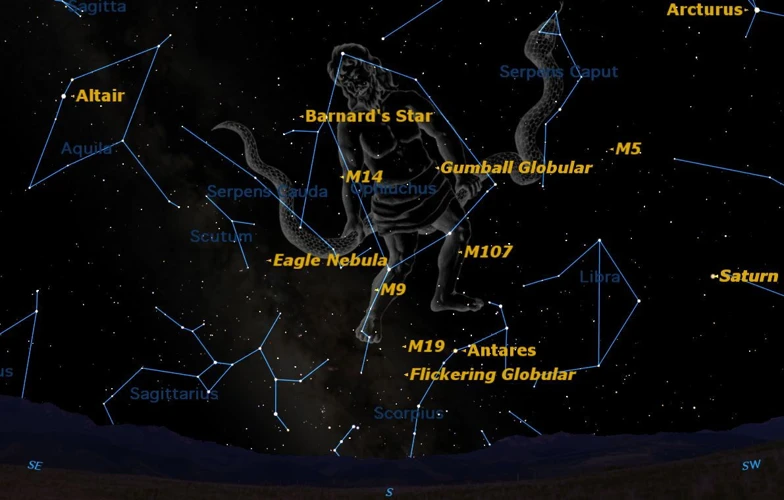
Scientific Criticism of Astrology
While astrology has its devoted followers, it also faces significant criticism from the scientific community. One of the primary criticisms is the lack of empirical evidence to support the claims made by astrology. Scientific research relies on rigorous testing, replication, and statistical analysis to validate theories and hypotheses. However, astrological predictions often rely on subjective interpretations rather than objective measurements. This absence of empirical evidence raises doubts among scientists about the validity of astrological claims.
Confirmation bias is another psychological factor that fuels criticism of astrology. Confirmation bias refers to the tendency to search for, interpret, and remember information that confirms preexisting beliefs or hypotheses while ignoring or downplaying contradictory evidence. In the case of astrology, individuals may selectively focus on instances where astrological predictions seem accurate while overlooking instances where they do not match reality. This biased perception can perpetuate the belief in astrology despite a lack of scientific evidence.
The Barnum Effect, also known as the Forer Effect, plays a significant role in the criticism of astrology. This psychological phenomenon refers to the tendency of individuals to accept and believe vague or general statements about themselves, thinking they are highly specific and personalized. Astrological readings often use generic statements that can apply to a broad range of people. Yet, individuals may interpret these statements as highly accurate and tailored to their unique personalities, leading them to believe in the validity of astrology.
Critics argue that astrology’s perceived accuracy can be attributed to a range of psychological factors, rather than its actual scientific basis. These factors include subjective validation, where individuals perceive vague or general statements as highly accurate and personalized, as well as the human tendency to seek patterns and meaning even in random events.
Despite these scientific criticisms, astrology continues to have a strong influence on individuals’ lives and remains a popular belief system. People find comfort, guidance, and a sense of self-identification through astrology’s interpretations and predictions. Whether one chooses to embrace astrology or remains skeptical, it is essential to approach it with a critical mindset and recognize the limitations and criticisms leveled against it.
1. Lack of Empirical Evidence
One of the primary criticisms leveled against astrology is the lack of empirical evidence supporting its claims. Empirical evidence refers to information obtained through scientific observation and experimentation. While astrology has been practiced for centuries and enjoys popularity among many individuals, scientific studies have failed to provide consistent and replicable evidence to substantiate its underlying principles.
Astrology relies on the notion that the positions and movements of celestial bodies have a direct impact on human behavior and life events. However, controlled experimental studies have not demonstrated a causal relationship between celestial phenomena and individual outcomes. Critics argue that astrological predictions and descriptions are often vague and generalized in nature, making them applicable to a wide range of people. In scientific terms, this lack of specificity and precision undermines the validity of astrology as a predictive tool.
Attempts to conduct rigorous scientific studies on astrology have faced significant challenges. The complexity of astrological interpretations and the many variables involved make it difficult to design experiments that meet the standards of scientific rigor. Additionally, the double-blind methodology commonly used in scientific research is difficult to apply to astrology due to the personalized nature of astrological readings.
Despite these challenges, proponents of astrology argue that the lack of empirical evidence does not necessarily invalidate its claims. They contend that astrology operates within a different realm or paradigm of understanding and that traditional scientific methods may not be adequate for measuring its effects accurately.
While astrology continues to fascinate and attract a substantial following, the lack of empirical evidence remains a significant stumbling block in establishing its scientific validity. Skeptics call for further research using rigorous scientific methods to provide conclusive evidence one way or the other. Until such evidence emerges, astrology will remain a subject open to interpretation and personal belief.
2. Confirmation Bias
Confirmation bias is a psychological phenomenon that plays a significant role in the belief and interpretation of astrology. It refers to the tendency of individuals to seek out and interpret information in a way that confirms their preexisting beliefs or expectations. In the context of astrology, confirmation bias can lead individuals to selectively focus on and remember information that supports their astrological predictions while disregarding or downplaying information that contradicts them.
When people read their horoscopes or receive astrological insights, they often look for specific details or traits that resonate with their own experiences or desires. This selective attention creates a confirmation bias, as individuals cherry-pick information that aligns with their expectations or self-perceptions. For example, if an individual reads that they will experience financial success in the near future, they may become more attuned to positive financial opportunities and dismiss or overlook any setbacks or challenges.
Confirmation bias also influences the way individuals interpret vague or general statements often found in astrological readings. These statements, known as Barnum statements, are phrased in such a way that they could apply to almost anyone. However, individuals tend to interpret them as highly personalized and accurate descriptions of themselves. This phenomenon occurs because people are inclined to attribute meaning to ambiguous statements by relating them to their own experiences or traits.
It is important to recognize confirmation bias in the context of astrology and other belief systems. While astrology can provide a sense of guidance and validation, it is crucial to approach it critically and consider alternative explanations or perspectives. Being aware of confirmation bias allows individuals to evaluate astrological readings and predictions objectively, without relying solely on subjective interpretations that confirm preexisting beliefs. By doing so, individuals can embrace a more balanced and nuanced understanding of astrology.
3. The Barnum Effect
The Barnum Effect, also known as the Forer Effect, is a psychological phenomenon that plays a significant role in astrology and its perceived accuracy. This effect refers to the tendency of individuals to believe generic personality descriptions that are said to be tailored specifically to them. Named after the famous showman P.T. Barnum, who was known for making general statements that applied to a wide range of people, the Barnum Effect highlights our inclination to accept vague and ambiguous statements as highly accurate and personally meaningful.
In the context of astrology, the Barnum Effect comes into play when individuals read their horoscopes or receive astrological readings. Astrologers often use language and statements that are general enough to apply to a large number of people while giving the impression of specificity. These statements can be interpreted in a way that resonates with individuals, who then believe that the astrologer has provided accurate insights into their lives.
For example, an astrologer might say, “You have a strong desire for success, but sometimes doubt your abilities. You strive for harmony in your relationships but can be sensitive to criticism.” These statements are general enough that they could apply to many individuals. However, because they touch on common human desires and vulnerabilities, people are more likely to perceive them as highly accurate descriptions of their own personalities.
The Barnum Effect occurs because individuals tend to focus on the aspects of the description that align with their own experiences and personality traits while disregarding or downplaying the parts that do not match. This selective perception leads to a sense of validation and belief in the accuracy of astrology.
It’s important to recognize the Barnum Effect when evaluating astrological readings or horoscopes. While they may provide some entertainment or serve as a source of inspiration, it is crucial to approach them with a critical mindset. Being aware of the general and ambiguous nature of astrological statements can help individuals make more informed judgments about their personal significance.
The Barnum Effect sheds light on the psychological processes at play in astrology and the tendency of individuals to perceive generic statements as highly accurate and personally meaningful. Understanding this effect can help individuals approach astrology with a balanced perspective, recognizing its limitations while still appreciating the insights it may provide.
Psychological Role of Astrology
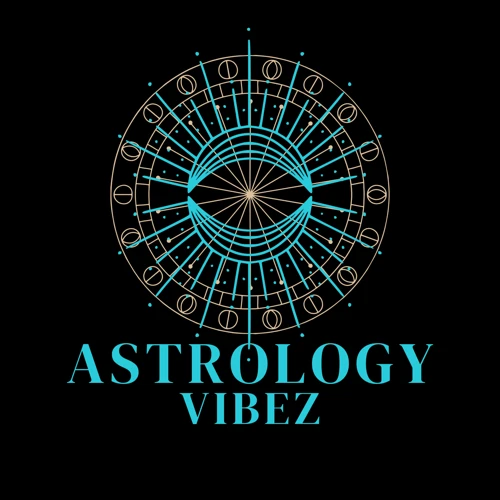
The psychological role of astrology plays a significant part in the lives of many individuals, offering a sense of self-reflection, validation, and a feeling of identity and belonging. Here are two key aspects of astrology’s psychological impact:
1. Self-Reflection and Self-Validation: Astrology provides individuals with a framework for self-reflection and understanding. By exploring their zodiac sign’s traits and characteristics, individuals may gain insights into their own personality, strengths, weaknesses, and potential areas for personal growth. Astrological readings can serve as a tool for introspection, prompting individuals to reflect on their behaviors, emotions, and motivations. This process of self-reflection can lead to a deeper understanding of oneself and foster personal development.
2. Sense of Identity and Belonging: Astrology offers individuals a sense of identity and belonging within a larger cosmic context. By identifying with a zodiac sign, individuals can feel connected to a broader community of people who share similar characteristics and experiences. This sense of belonging can provide comfort and validation, as individuals may find solace in knowing that others share their struggles, aspirations, and personality traits. Astrology can also serve as a source of guidance and support during challenging times, offering a sense of cosmic alignment and purpose.
It is important to note that while astrology can have psychological benefits for some individuals, it is not a substitute for professional psychological or therapeutic help. It is essential to approach astrology with an open mind, recognizing its potential insights while also being mindful of its limitations. Ultimately, the psychological role of astrology can vary from person to person, with some finding solace and guidance, while others may view it with skepticism. Regardless of personal beliefs, astrology continues to provide individuals with a platform for self-reflection, validation, and a sense of connection to the cosmos.
1. Self-Reflection and Self-Validation
Self-reflection and self-validation play crucial roles in the psychological aspects of astrology. Many individuals turn to astrology as a means to gain deeper insights into themselves and their personal journeys. By examining their astrological charts and horoscopes, individuals can reflect on their personality traits, strengths, weaknesses, and life patterns. This process of self-reflection allows individuals to gain a better understanding of their own motivations, desires, and challenges. It offers an opportunity for introspection and self-exploration, helping individuals to identify areas for personal growth and development.
Astrology provides a framework for self-validation as well. When individuals read their astrological profiles and find characteristics or patterns that resonate with them, it can provide a sense of validation and affirmation. Knowing that their astrological sign aligns with certain personality traits or experiences can bring comfort and reassurance. It can validate their feelings and experiences, making them feel understood and accepted.
Self-reflection and self-validation through astrology can promote a sense of empowerment and agency. By understanding their astrological influences, individuals may feel more equipped to navigate life challenges and make informed decisions. They can recognize their strengths and capitalize on them while also acknowledging their weaknesses and working on personal growth areas.
It is worth noting that astrology serves as a tool for self-reflection and self-validation, but it should not be the sole determinant of one’s identity or choices. It should be approached with a critical mindset, recognizing that astrology offers general guidance and insights rather than definitive predictions or solutions.
Self-reflection and self-validation are intrinsic components of astrology. As individuals explore their astrological profiles and delve into the depths of their personalities, they find opportunities for growth, understanding, and acceptance. Astrology, in this context, serves as a tool for self-discovery and personal development, aiding individuals in their journey towards self-actualization and fulfillment.
2. Sense of Identity and Belonging
The study of astrology not only provides individuals with self-reflection and validation but also plays a significant role in shaping their sense of identity and belonging. Astrology offers a framework through which people can identify and connect with others who share their zodiac signs and associated traits. It provides a sense of community and belongingness, as individuals can bond over their shared experiences and characteristics.
Astrology serves as a tool for self-identity exploration, allowing individuals to delve into their personalities, strengths, weaknesses, and potential areas of growth. By understanding their astrological profiles, individuals can gain insights into their natural inclinations, emotional patterns, and even compatibility with others. This self-awareness can help shape their sense of identity by providing a deeper understanding of themselves and their place within the world.
Additionally, astrology offers a platform for individuals to connect and form relationships based on their zodiac signs. It can serve as a starting point for conversations and shared experiences, creating a sense of camaraderie among astrology enthusiasts. People often seek out others who share their sign, finding comfort and validation in knowing that they are not alone in their astrological predispositions.
Astrology fosters a sense of belonging on a broader scale. As individuals identify with their zodiac sign, they become part of a larger astrological community. This community can be found both online, through astrology forums, social media groups, and websites, as well as offline, through astrology-focused events and gatherings. Participating in these communities allows individuals to share their beliefs, experiences, and insights, creating a sense of connection and belonging with others who are equally fascinated by astrology.
Ultimately, astrology’s role in providing a sense of identity and belonging extends beyond the realm of the individual. It weaves a tapestry of connections and shared experiences, allowing individuals to recognize and appreciate the diversity of human nature. Through astrology, people can find comfort, validation, and a sense of community as they navigate the complexities of their own identities and forge connections with like-minded individuals. (For more information on embracing individuality and breaking traditional norms, you can read the article “Embracing Individuality: The Love of Ophiuchus and Breaking Traditional Norms“).
Closing Thoughts
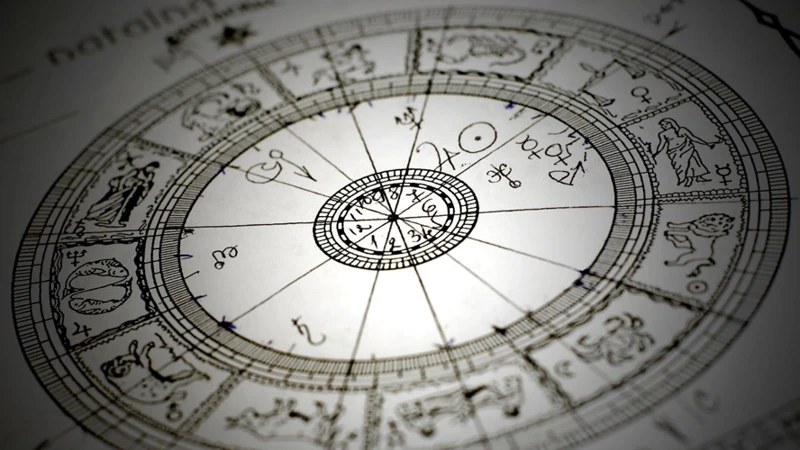
In closing, astrology continues to captivate individuals across the globe, offering insights and guidance in their quest for self-discovery and understanding. While the scientific community remains skeptical about the validity of astrology, it is undeniable that many people find comfort and a sense of direction through astrological readings. Astrology serves as a tool for self-reflection and self-validation, allowing individuals to explore their strengths, weaknesses, and potential pathways in life. It also provides a sense of identity and belonging, as individuals can identify with their zodiac sign and the associated traits and characteristics. Whether one believes in astrology or not, it is clear that it fulfills a psychological role in providing comfort, guidance, and a sense of connection to something greater than oneself. As we navigate our complex human existence, astrology offers a unique lens through which we can explore both ourselves and the world around us. So, if you find value in the insights astrology provides, embrace it as part of your journey to self-discovery and personal growth.
Editor’s Note:
For those interested in exploring astrology beyond the traditional zodiac signs, the introduction of Ophiuchus has sparked intrigue and debate. Ophiuchus, also known as the serpent bearer, represents the 13th zodiac sign that was once omitted from the Western zodiac system. To learn more about how Ophiuchus can influence relationships, you can read our article on navigating jealousy and trust issues with Ophiuchus in relationships. Additionally, if you’re curious about how Ophiuchus influences friendships, you can check out our article on understanding Ophiuchus and its impact on friendships.
Conclusion
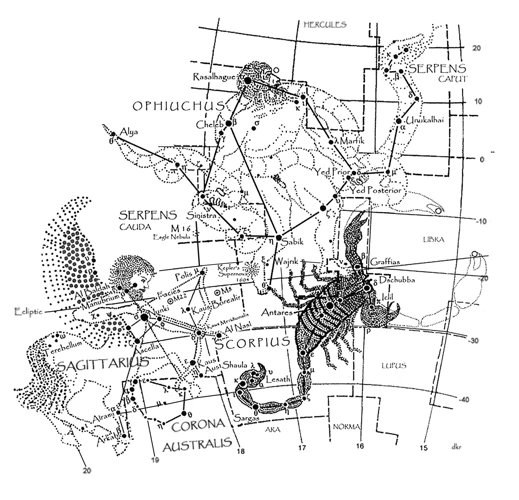
In conclusion, astrology has a long and rich history as a belief system that attempts to explain the influence of celestial bodies on human behavior. While astrology continues to captivate and intrigue individuals around the world, it is important to approach it with a critical and skeptical mindset. The scientific study of human behavior, including fields such as psychology, sociology, and anthropology, offers alternative perspectives for understanding personality traits, relationships, and societal influence.
There is a lack of empirical evidence to support the claims made by astrology, and scientific criticisms highlight factors such as confirmation bias and the Barnum Effect that may contribute to its perceived accuracy. However, astrology plays a significant psychological role for many individuals, providing a sense of self-reflection, validation, and a connection to a larger sense of identity and belonging.
Ultimately, the study of astrology and its impact on human behavior invites us to consider the complexities of our own nature and the larger forces that shape our lives. While astrology may not align with scientific principles, it continues to serve as a source of fascination and personal exploration for those who find meaning and guidance in its interpretations. Whether one chooses to embrace astrology as a guiding force or views it as a mere curiosity, the study of astrology offers a unique lens through which to examine and understand ourselves and the world around us.
Frequently Asked Questions
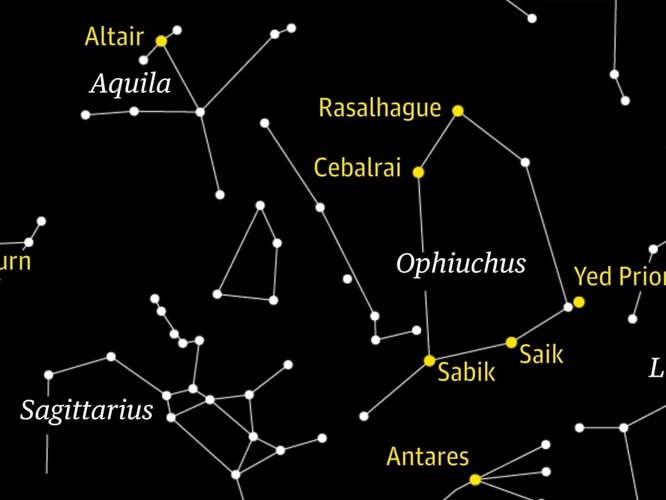
1. What is the history of astrology?
Astrology has a rich history that dates back to ancient civilizations such as Mesopotamia, Greece, Rome, and Egypt. These cultures developed and refined the practice of observing celestial bodies and their influence on human behavior and life events.
2. How does astrology determine personality traits?
Astrology attributes personality traits based on the position of the sun, moon, and planets at the time of a person’s birth. Each zodiac sign is associated with specific characteristics that are believed to influence an individual’s personality.
3. Can astrology predict the future?
Astrology is often used as a tool for predicting future events. However, it’s important to approach these predictions with skepticism, as astrology lacks empirical evidence and scientific validity.
4. What is the role of astrology in relationships?
Astrology is frequently consulted to gain insights into relationships. It examines the compatibility between two individuals based on their zodiac signs and can offer guidance on how they may interact and relate to each other.
5. Can astrology help with decision making?
Some individuals turn to astrology for guidance in decision making. Astrology can provide insights into personality traits and potential outcomes, which some people find helpful when considering different options.
6. Is astrology considered a science?
Astrology is not considered a science in the traditional sense. It does not follow the scientific method and lacks empirical evidence. However, it remains an intriguing and popular belief system for many.
7. How does astrology impact self-reflection?
Astrology can play a role in self-reflection by providing individuals with a framework to analyze their personality traits and tendencies. It can offer insights into strengths, weaknesses, and areas for personal growth.
8. How does astrology contribute to a sense of identity?
Astrology can contribute to a sense of identity by providing individuals with a connection to a larger cosmic order. It helps some people understand their place in the world and find a sense of belonging.
9. Can astrology be used for career guidance?
Astrology enthusiasts sometimes turn to their birth charts to gain insights into suitable career paths. By analyzing the positions of celestial bodies at the time of birth, astrologers believe they can make recommendations for career direction.
10. How do skeptics explain the correlations in astrology?
Skeptics attribute the correlations in astrology to factors such as chance, confirmation bias, and the Barnum Effect. These psychological phenomena can create the illusion of accuracy in astrological predictions.
References
Frequently Asked Questions

1. Is astrology considered a science?
No, astrology is not considered a science by the majority of the scientific community. It is classified as a pseudoscience because it lacks empirical evidence and its principles have not been proven through controlled experiments.
2. What are some common astrological concepts?
Some common astrological concepts include the zodiac signs, birth charts, and horoscopes. These concepts are used to interpret the influence of celestial bodies on human behavior and personality traits.
3. How does astrology influence human behavior?
Astrology suggests that the positions of celestial bodies at the time of a person’s birth can shape their personality traits and influence their behavior. However, this is not supported by scientific evidence.
4. What is the scientific study of human behavior?
The scientific study of human behavior is known as psychology. It involves the systematic observation and analysis of individuals’ thoughts, feelings, and actions in order to understand and explain human behavior.
5. Can astrology provide accurate predictions?
No, astrology cannot provide accurate predictions. Scientific studies have shown that astrological predictions are no more accurate than random chance. Any perceived accuracy may be due to subjective validation or the Barnum effect.
6. What role does psychology play in understanding human behavior?
Psychology plays a crucial role in understanding human behavior by studying various factors such as personality traits, cognitive processes, and social influences. It uses scientific methods to uncover patterns and explanations for human actions.
7. How does astrology impact one’s sense of identity and belonging?
Astrology can provide individuals with a sense of identity and belonging as they relate to the characteristics and traits associated with their zodiac sign. It can offer a sense of community and connection with others who share the same sign.
8. What is confirmation bias?
Confirmation bias is the tendency to interpret or seek out information that supports one’s existing beliefs or preconceptions. In the context of astrology, individuals may selectively focus on information that confirms their astrological beliefs while ignoring contradictory evidence.
9. How does astrology contribute to self-reflection and self-validation?
Astrology can contribute to self-reflection and self-validation by providing individuals with a framework to analyze their personality traits and life experiences. It can serve as a tool for introspection and self-understanding.
10. Does astrology have any scientific credibility?
No, astrology does not have scientific credibility. The principles and predictions of astrology have not been supported by rigorous scientific research, and its claims have been repeatedly debunked by the scientific community.

